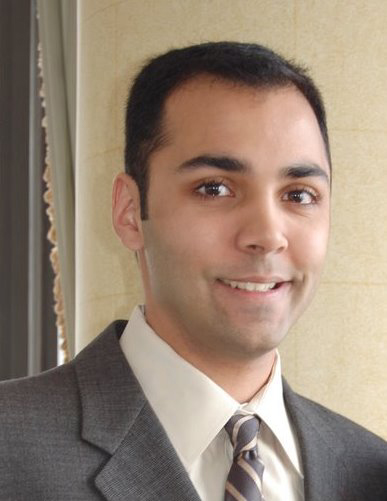
During his first year of fellowship Dr. Ponda began to contemplate what his next step would be. His mentor at NYU, Dr. Ed Skolnik, directed him to the Clinical Scholars program at Rockefeller University. Dr. Ponda was introduced to Dr. Barry Coller and through their discussions he decided that the Clinical Scholars program would be a great fit.
He was delighted when he was accepted into Dr. Jan Breslow’s Laboratory of Biochemical Genetics and Metabolism to investigate mechanisms of accelerated atherosclerosis in patients with chronic kidney disease. “Similar to the general population, cardiovascular disease is the leading causes of death in people with kidney disease, except that it happens at an accelerated rate. However, we do not yet fully understand the underlying mechanisms related to kidney disease. Even when you control for comorbid conditions, such as diabetes and hypertension, kidney disease is still an independent risk factor.” The importance of this research seems magnified by the statistics. “There are a half million people in the United States who are on dialysis and over 10 million with significant kidney disease who are not on dialysis. The majority of these patients will die of cardiovascular disease at rates 10-20 times higher than the general population.”
Dr. Ponda is currently working on two studies. The first, which was funded by two CTSA pilot project awards, is a clinical study looking at the effect of vitamin D3 repletion on endotoxemia and biomarkers of accelerated atherosclerosis in subjects with moderate chronic kidney disease. This project will compare blood endotoxin levels and other biomarkers in twelve vitamin D-deficient subjects with chronic kidney disease before and after the repletion of vitamin D3. “This is the first study of its kind in patients with kidney disease. The news media has been talking about vitamin D, yet there have not been any studies investigating whether vitamin D is effective or if it merely a marker of health.” The study is only a few weeks away from completing the data collection phase, with the final patient due to finish in early June. “Diana Bernal-Messinger, a Clinical Research Nurse Practitioner in the CCTS Clinical Research Coordinator office, has been invaluable to the progress the study made.” The next step for this study and Dr. Ponda is data analysis and from those results develop a larger scale study.
Dr. Ponda’s second project is a collaboration with investigators at NYU. “We are using an animal model to examine how kidney disease may affect the regression of atherosclerosis. Conventional therapy directed at atherosclerosis in ineffective in individuals that are already on dialysis. There is a great need for a new therapy to treat these individuals.” So far they have made the novel finding that kidney disease inhibits the regression of atherosclerosis. Their current work is focused on defining the molecular mechanisms behind the phenomenon. This work has also formed the basis of Dr. Ponda’s K08 proposal.
When asked about how the Clinical Scholars program has benefited him, he responded, “The challenges that young physician-scientists face are much greater than in the past and the Clinical Scholars program has helped me to overcome those challenges and become exposed to many amazing opportunities. Both the formal and informal training that I have received have become an integral part of the research that I am conducting.”
Dr. Ponda hopes to have his K08 proposal funded, which would allow him to remain in the Breslow lab and continue his studies. “The unique structure and facilities of the Rockefeller CTSA, such as the Rockefeller University Hospital and the Clinical Research Coordinators Office, makes it possible to move between bench and bedside. My five-year plan is to focus on the molecular mechanisms of atherosclerosis in the context of kidney disease, but also to continue to conduct clinical and translational science based on our findings to this point.”
June 1, 2009
Meet the Scholar: Manish Ponda, M.D.
By Jennifer Spada
Dr. Manish Ponda received his first real exposure to medical research while he was an undergrad at Harvard University, working in a molecular biology laboratory at the Massachusetts General Hospital. He enjoyed the work so much that he graduated early to continue in the lab full-time for a year prior to entering medical school. He obtained his medical degree from SUNY Downstate, “which has a legacy in nephrology”. He completed his residency in internal medicine at New York University (NYU) and then went on to a fellowship in nephrology at Albert Einstein Medical College.

